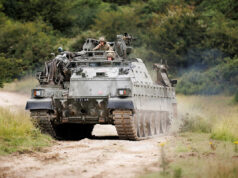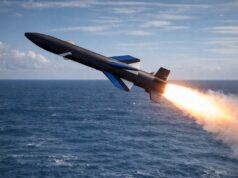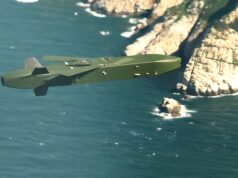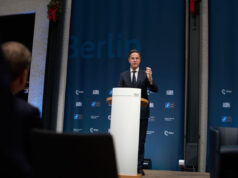British Defence Secretary Michael Fallon has welcomed the new Canadian Defence Policy.
In what the UK government are calling another demonstration of the UK and Canada’s strong Defence relationship, Defence Secretary Fallon has given his backing to Canada’s new Defence Policy.
Fallon said:
“I welcome the new Canadian Defence Policy. Its commitments to remain Engaged in the World, and maintain Canadian contributions to peace and stabilisation, mirror our own.
I am greatly encouraged by the Policy’s commitment to an uplift in the Canadian Defence budget and new capabilities. In particular, the commitment to invest $108 billion in purchasing and upgrading Canadian Forces equipment, including a full complement of 15 new warships and 88 advanced fighter jets, is a welcome development. This is representative of the way that NATO members across the alliance are stepping up to ensure that our collective defence will have the modern capabilities needed in a changing world.”
They key points of the new policy are:
- Invest $198.2 million over the course of the policy to implement a new Total Health and Wellness Strategy that will expand wellness beyond the traditional healthcare model to include promotion, prevention, treatment, and support, and provide a greater range of health and wellness services and programs.
- Invest an additional $6 million per year to modernize family support programs, such as Military Family Resource Centres, to provide better support to families when members are deploying or during periods of absence.
- Increase the proportion of women in the military by one percentage point annually, to achieve 25 percent representation by 2026, to our operational advantage;
- Transform the transition process to better support CAF members and their families by establishing a 1,200-person CAF Transition Group. The creation of this new group means all of our women and men will be taken care of as they transition back into the CAF following illness or injury, or out of the CAF and into civilian life at the conclusion of military service.
- Implement teams at Military Family Resource Centres to prevent and respond to gender-based violence.
- Increase the size of the Regular Force by 3,500 (to 71,500) and the Reserve Force by 1,500 (to 30,000) members. The Reserves will also become more integrated into the total force, providing agile and effective full-time capability through part-time service.
- Replace the CF-18 fleet with 88 advanced fighter aircraft, through an open and transparent competition, to improve CAF air control and air attack capability;
- Provide the funding required for the full complement of 15 Canadian Surface Combatants;
- Improve land capabilities including ground based air defence, combat support vehicles, heavy logistics vehicles, and training simulators;
- Create a new CAF Cyber Operator occupation to attract Canada’s best and brightest talent to cyber functions.
- Invest in a range of remotely piloted systems, including an armed aerial system capable of conducting surveillance and precision strikes.
- Launch a new program, Innovation for Defence Excellence and Security (IDEaS), which will see $1.6 billion invested over the next 20 years to modernize the way National Defence generates solutions through new cooperative partnerships with the private sector, universities, and academics.
- Establish up to 120 new military intelligence positions, some of which will be filled by Reservists, and add up to 180 new civilian intelligence positions.
- Grow the civilian workforce by 1,150 employees to enable and support military operations.
- Meet the federal target to reduce greenhouse gas emissions by 40 percent from the 2005 levels by 2030, excluding military fleets.
- Strengthen relationships with the defence community, including academia and the private sector. Today, more than ever, innovation, technology, and problem solving are critical to meeting evolving defence and security needs.
- Improve the procurement process within National Defence to reduce departmental approval times by 50 percent, allow over 80 percent of defence procurement contracts to be managed by National Defence, and increase transparency.













